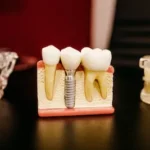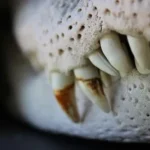Dreams about teeth falling out are quite common and can leave you feeling unsettled and confused. You may wake up wondering if there is a deeper meaning behind these dreams and what your subconscious is trying to tell you. While there is no one-size-fits-all interpretation for these dreams, there are several possible meanings and explanations that can shed some light on why you may be having them. In this blog post, we will explore the various interpretations and scenarios for teeth falling out dreams.
1. Personal Loss
One of the most common interpretations of dreaming about your teeth falling out is related to deep personal loss. This loss could be the death of a loved one, the end of a marriage or partnership, the loss of a job, or even losing your home. In some religions, there is a belief that dreaming about tooth loss can be a sign of an impending death in the family. If you have recently experienced a significant loss or are going through a period of grief, it is not uncommon for this to manifest in your dreams as teeth falling out.
2. Religious Beliefs
Religion can also play a role in the occurrence of teeth falling out dreams. If you are experiencing paranoia about your beliefs or are worried about potential future events, this could influence your dreams. Stress and anxiety often go hand in hand, and if you are feeling overwhelmed by religious or spiritual concerns, this may be reflected in your dreams.
3. Stress and Anxiety
Stress is a normal part of life, but excessive stress can have negative effects on both your physical and mental well-being. Dreams about your teeth falling out can be a result of increased stress levels that you may be experiencing. Whether it is related to work or personal life, uncontrolled stress can manifest in your dreams as teeth falling out.
4. Anxiety and Teeth Grinding
Anxiety is a long-term condition characterized by excessive worrying and insecurity that can interfere with your daily life. Anxiety can often cause teeth grinding during sleep, known as bruxism, which is one possible cause of dreams about teeth falling out. The intense worrying and fear associated with anxiety can make you more prone to dreaming about potential negative outcomes, such as teeth falling out.
5. Major Life Changes
Both stress and anxiety can be associated with major changes happening in your life. Whether it is a new job, a promotion, moving to a new city, or getting married and starting a family, significant life changes can affect your subconscious mind. You may be worried about potential problems or obstacles that could arise with these changes, leading to dreams about tooth loss.
6. Depression and Low Self-Worth
Depression is a mental health condition characterized by long-term feelings of extreme guilt, hopelessness, and sometimes loneliness. When you have low self-worth, you may start imagining things wrong with your physical well-being, including your teeth. If you are experiencing symptoms of depression and are having frequent dreams about your teeth falling out, it may be helpful to discuss this with your doctor or a mental health professional.
7. Jealousy and Negative Energy
Feelings of jealousy toward others, whether it is a partner, a friend, or a co-worker, can create negative energy that affects your subconscious mind while you sleep. This pent-up negative energy may manifest in delusional dreams, including dreams about your teeth falling out. These dreams may also include scenarios where others are missing teeth, reflecting negative feelings you have toward that person.
8. Teeth Grinding and Subconscious Thoughts
Teeth grinding can potentially lead to subconscious thoughts or dreams about your teeth falling out. However, the reverse scenario is also possible. Having a dream about your teeth falling out might actually lead to teeth grinding during sleep. If you recently experienced a tooth falling out or breaking in real life, you may dream about that event and potentially have additional dreams about more teeth falling out.
9. Children and Growth
For children and adolescents who are still growing out their baby teeth, it is not uncommon to have dreams about the growth of new adult (permanent) teeth. These dreams may reflect their awareness of the natural process of losing baby teeth and growing new ones. It is important to reassure children that their teeth are secure and that it takes time for their new adult teeth to come in.
10. Neglecting Self-Care
Neglecting your self-care routine can have a negative impact on your overall health, including your sleep quality. If you are not eating well, exercising regularly, or paying attention to your personal health needs, it is possible to have unusual or recurring dreams, such as dreams about your teeth falling out. These dreams may be a reflection of your subconscious mind telling you that you are not taking care of yourself.
11. Post-Traumatic Stress Disorder (PTSD), Anxiety, and Depression
Recurring dreams, especially nightmares, are common in people with post-traumatic stress disorder (PTSD), anxiety, and depression. Dreams about teeth falling out can be associated with these mental health conditions. It is important to address these underlying conditions with a healthcare professional to ensure proper treatment and support.
12. Historical and Cultural Beliefs
Dreams about tooth loss have been discussed for centuries, dating back to ancient civilizations such as the Ancient Greeks. Throughout history, different cultures and religions have attributed various meanings to dreams about teeth falling out. These interpretations can vary widely and often depend on cultural, religious, and personal beliefs.
In conclusion, dreams about teeth falling out can have multiple interpretations and meanings. While some may be related to stress, anxiety, personal loss, or psychological distress, others may be influenced by religious or cultural beliefs. It is essential to consider the specific circumstances and events happening in your life when trying to interpret these dreams. If you are concerned about the frequency or impact of your dreams, it may be helpful to discuss them with a doctor or mental health professional.









